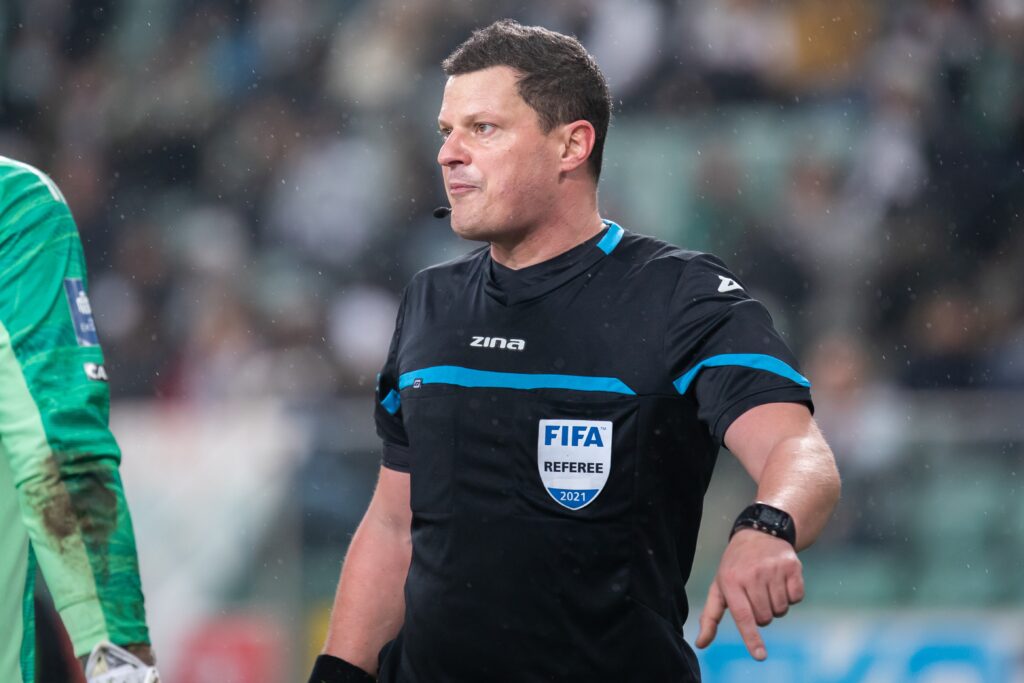You don’t always have to speak to send a message.
With observation marks on offer for displaying self control, through demonstrating authority and confidence, body language can have a huge impact on a referee’s performance and the success of their ability to control the fixture.
Poor Body Language
Poor body language displayed by a referee tells players, club officials and spectators that you can be easily rattled and distracted, while good body language screams focus, energy and mental toughness.
From a coaching perspective, Don Showalter, Director of Coach Development for United States Basketball and Head Coach of the US Basketball Junior Men’s National Team, spoke on the topic of basketball body language at a Cavaliers Academy camp in Strongsville, Ohio.
“I go watch literally thousands of players each year and (watch) how they communicate with their body language when they’re sitting on the bench, how they communicate with their body language with their coach when he talks to them. Those things are very important, and what they do is portray what kind of person that player is. We tell our USA players all the time on the junior national team, if you have bad body language, poor body language on a consistent basis, you will never play for us. First of all, it’s a strong way to get across the fact that you have an attitude that’s not really what we want. Poor body language shows us that you’re susceptible to what goes on on the court and you can’t play through things. I think young kids need to know that,” – Don Showalter, Director of Coach Development, United States Basketball and Head Coach, US Basketball Junior Men’s National Team
Acts of poor body language displayed by officials can often be spotted from across the field of play. They include hanging your head, sulking, slouching, looking disinterested or lackadaisical, rolling your eyes when a player or club official is speaking to you, etc. Acts like this, whether they be out in the middle or on the touchline, send messages of selfishness, immaturity and fragility.
Successful Body Language
Avoiding these acts will automatically make your body language more “neutral,” but what qualifies as “successful” body language? What can a referee do in terms of their body language to stand out in a positive manner? They can start with thinking about being a great leader at all times. If this is your guiding principle, you’re going to naturally exhibit a lot of excellent body language. Build a rapport with players. Encourage good conduct. Offer to help them up off the pitch. Stay in their ear with encouragement through thick and thin. Listen to them when they talk. Be invested in their performance.
“We emphasise all the time to be great teammates…How are you when your teammate comes off the court? How are you when you go in? Do you encourage them? Are you a positive guy, a positive role model? All that says a lot about who you are as a person, but it also goes a long way towards how your team does,” – Don Showalter, Director of Coach Development, United States Basketball and Head Coach, US Basketball Junior Men’s National Team
Don Showalter coached top basketball players like Bradley Beal, Aaron Gordon and Justise Winslow before they were stars.
“If you’re sitting on the bench, you’re into the game, you know what’s going on, you’re watching the player you’re gonna guard when you come into the game so you know his tendencies. How are you when the coach talks to you? Are you a guy who looks away from him, or are you a guy who knows how to look a guy in the eye when you communicate? Young people don’t really know how to communicate. So we teach (our players) to look them in the eye, follow their direction, (and) listen. Listening is a choice. You don’t just wait for a turn to talk.” – Don Showalter, Director of Coach Development, United States Basketball and Head Coach, US Basketball Junior Men’s National Team
It’s one thing to simply avoid poor body language, but acting with great body language on a consistent basis can help a referee take themselves and their officiating team to the next level.
At The Third Team I work individually and in collaboration with different professionals where I have developed workshops and 1-2-1 sessions associated with Resilience and Mental Toughness Development to help referees. The workshops and 1-2-1 sessions are interactive, where referees are encouraged to open up and share their experiences to help themselves and each other.
Feel free to contact me if you’d like to know more about my workshops or 1-2-1 sessions and how I could help you or your officials.
Best Wishes,

Nathan Sherratt
Referee Educator & Managing Director of The Third Team

Nathan Sherratt
Nathan Sherratt, Referee Educator, Resilience Trainer and Managing Director of The Third Team. A Mental Toughness Practitioner based in County Durham, North East England.

